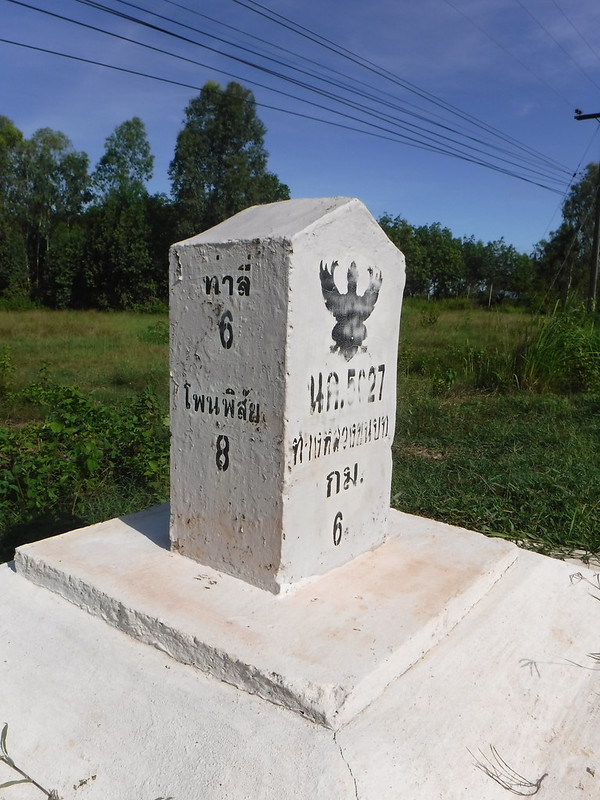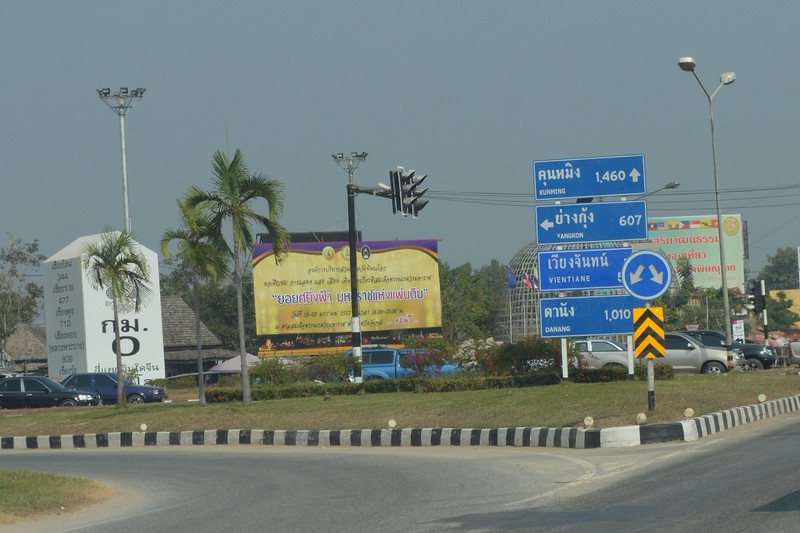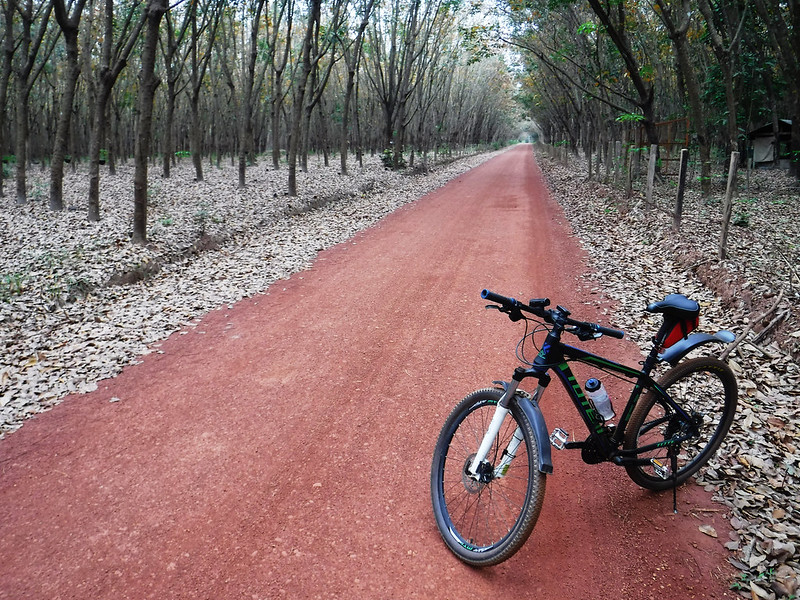Monsoon season. That's a fancy term for a seasonal rainy season. Practically it means that for part of the year, it is very wet. Add to the normal rains a tropical storm pushing in from the east and, well, its kind of soggy in Phon Phisai right now.
To our regional climate we will add some humans. Humans often began to settle in areas that were near rivers. It made sense. Rivers were transportation channels and a source of food. Phon Phisai is on the confluence of the Mekong River and a smaller river called Huai Luang. It was a good place to settle.
Now we'll add s small geomorphology lesson.
Geomorphology is the study of landforms. A typical landform associated with rivers and streams is a floodplain. A floodplain generally has two main parts:
The levee is a relatively high part of the floodplain located adjacent to the river. The soils here are generally coarser (e.g. sand and fine gravel).
Adjacent to the levee is the backswamp. This is a relatively lower position. The soils here tend to be finer-textured (e.g. silt and clay).
When we combine landforms, climate and humans, we can get some interesting results.
Because the backswamp is lower, it tends to be wetter. And because the soils are finer-textured, they hold onto water longer. As a result, when people would build adjacent to a river, they would often build on the levee, as opposed to the backswamp.
But as villages grow, people need a place to build, so they will often fill in areas of the backswamp and build there. In some places there are grading ordinances and such regarding the filling of low areas. Here in Thailand, if there are such rules, there is no obvious indication. And people don't seem to think much about what happens to the water that falls on the landscape.
So the basic rule is, if I am going to build, I need to build higher than what is around me. If I build next to someone who has built already, I just need to build higher than them. If the water that falls onto my place goes onto their place, well , that's not my problem.
The house we are renting, like many other houses in Phon Phisai, is built on a backswamp. There are a lot of areas that have been filled in, but some low areas remain that are generally used for growing rice. However, the field adjacent to us has been filled in on all sides and is the recipient of much of the runoff from the filled in areas. The only way for the water to get out of the field is through a small culvert that drains to an area where the water is impounded to protect other fields. The lowest part of that field is so wet, they can't even grow rice, though they tried last year. So last year we had this beautiful reflecting pool next-door. This year it is just aquatic weeds.
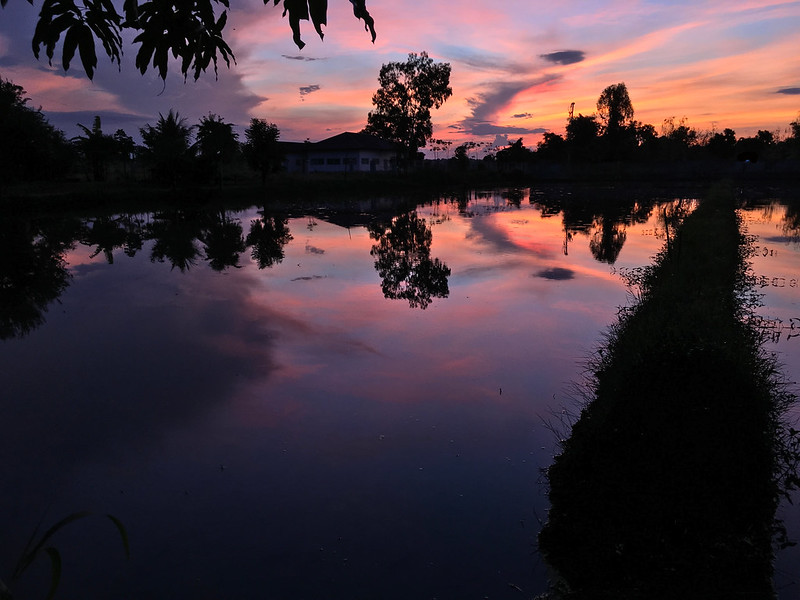 |
| The Field Next Door - Last Year |
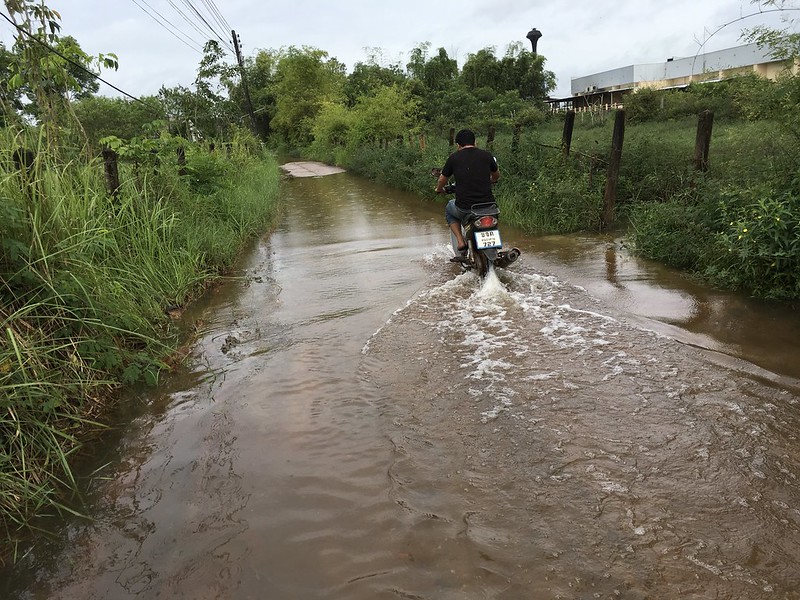 |
| Our Street |
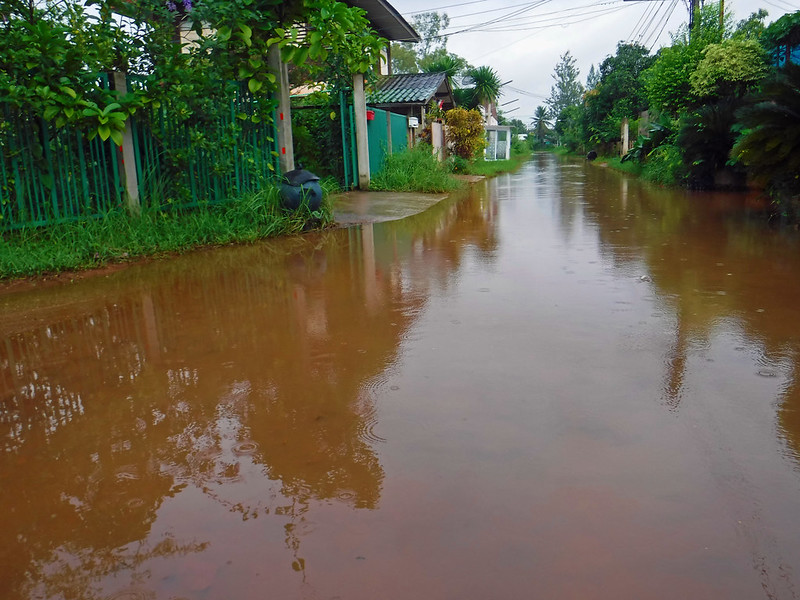 |
| Phon Phisai or Venice? |
But flooding is not the only problem we face. As I mentioned earlier, most of the houses are built on fill. Most the the soil they use to fill with is fairly clayey. Not the greatest stuff to build on, but it is what they have. And they don't engineer the fill, they just dump it. So the houses are built on unstable fill on top of mushy soils. Unless someone goes through a great effort to put in decent footings (not so common), the houses tend to crack with time. The house we are renting is less than 10 years old, yet there are several full length cracks.
 |
| Glad we don't have earthquakes |
Because I used to have a job making soil maps, I tend to think about these things. When we bought our first house in Bakersfield, one consideration I had was whether it would flood if one of the dams on Lake Isabella gave way. (A geologic fault line runs between the two dams on the lake.)
Jesus taught us that we should think about what we build on as well:
The people who come to me, who listen to my teachings and obey them—I will show you what they are like: They are like a man building a house. He digs deep and builds his house on rock. The floods come, and the water crashes against the house. But the flood cannot move the house, because it was built well. (Luke 6:48 ERV)
If we want our lives to be strong and endure, we need to build them on the right stuff. And the stuff to build our lives on is the teachings of Jesus. Jesus spoke the words above after giving what is called "The Sermon on the Mount." That body of teaching contains some things that are very difficult to practice. Yet, it is in the doing of these things that make for a strong house.
I pray for strength and wisdom from the Holy Spirit to embrace the teachings of Jesus in my life and I am thankful for the grace that comes through Christ Jesus when I fall short. I want my life to not be like a poorly built house on a backswamp.


